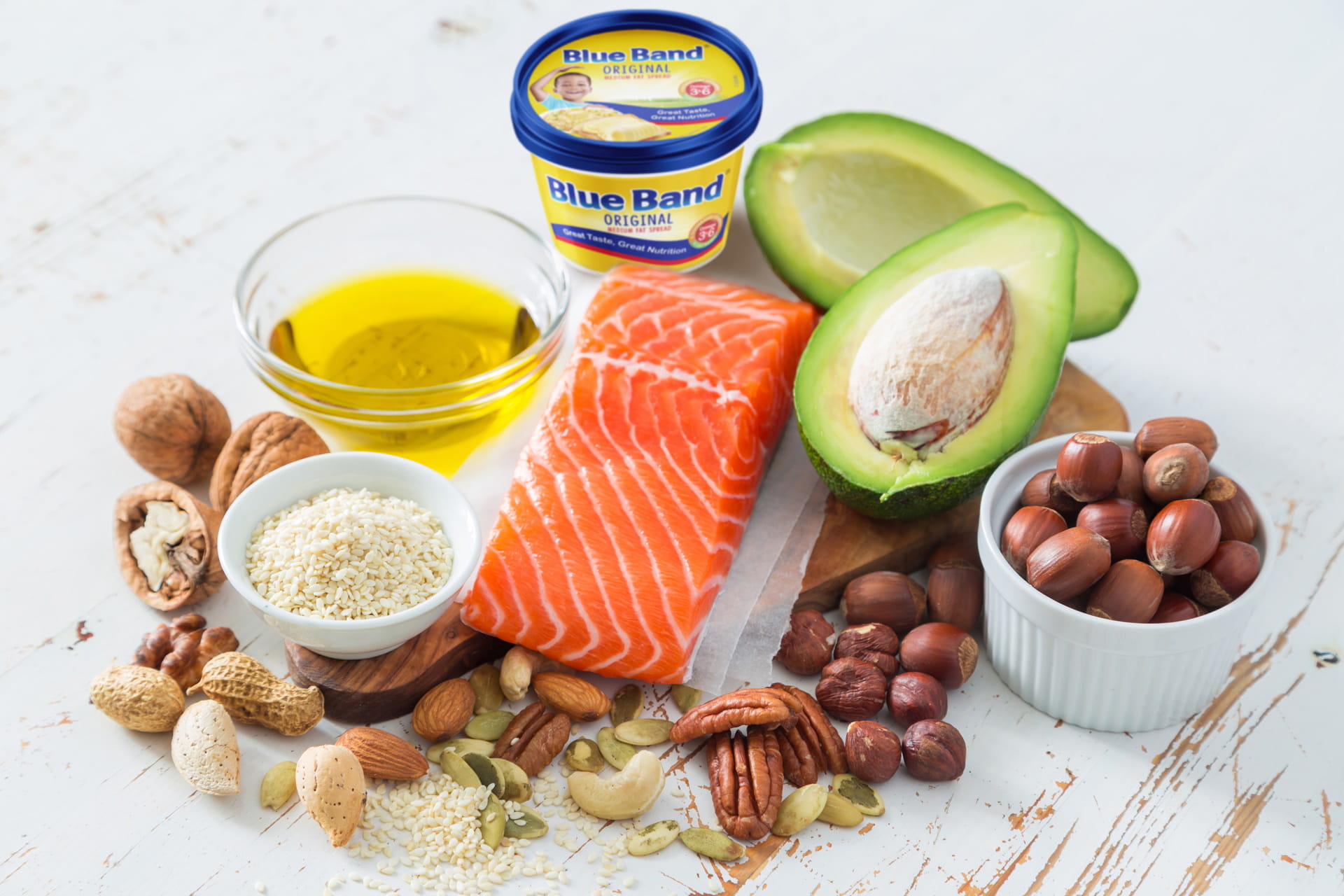-
Why do margarine or fat spreads contain vitamins?Blue Band Margarine helps you to get daily need of vitamins which are 6 good start vitamins; Vitamin A, D, B6, B12, Folic Acid and Niacin to grow healthy and happy kids.
-
Does margarine or a fat spread contain trans fat?Trans fats are created naturally in the intestine of ruminants and can also be industrially produced by partial hydrogenation of plant oils. Blue Band does not use partial hydrogenated fats in the formulation of our products.
-
Does margarine or fat spreads increase the LDL (bad) cholesterol and lower the HDL (good)cholesterol?No. Saturated and trans fat can increase the LDL (bad) cholesterol levels and trans fats also lower the HDL (good) cholesterol levels. High cholesterol is a risk factor for the development of cardiovascular diseases. International health authorities such as the World Health Organization recommend replacing saturated fats by unsaturated fats and limit the intake of transfat<1% of total energy intake. Replacing saturated fat and trans fats with unsaturated fats, especially polyunsaturated fats, has a favourableeffect on the blood lipid profile, and can reduce (bad) LDL cholesterol levels.
-
Why do we need to eat fat? Is it good or bad?Fat is recommended as part of a balanced diet. Up to 30% of our daily calorie intake should be represented by fat. Dietary fats are needed for several reasons. They provide energy, help to carry fat-soluble vitamins (like vitamin A and D), are building blocks of body cells, contribute to the feeling of satiety and they make foods palatable and tasty.
-
Why do children need dietary fats?Dietary fats are needed for several reasons. They provide energy, help to carry fat-soluble vitamins (like vitamin A and D), are building blocks of body cells, contribute to the feeling of satiety and they make foods palatable and tasty.
-
What are trans fats?Trans fats are created naturally in the intestine of ruminants and can be also industrially produced by partial hydrogenation of plant oils. The existence of trans fats from partial hydrogenation has significantly decreased over the past 10-15 years. Blue Band is not using partial hydrogenated fats in the formulation of our products. Trans fats raise the bad (LDL) cholesterol levels and lower good (HDL) cholesterol levels. Eating trans fats can increase the risk of developing heart diseases. Trans fat intake should be as low as possible, <1% of daily calorie intake.
-
What are saturated fats?Saturated fats are fat molecules without double bonds between carbon molecules in the fatty acid chain. Saturated fats are typically solid at room temperature.
-
Are saturated fats bad fats?From a health perspective, saturated fats (SAFA) are called “bad” fats because they have been shown to increase blood cholesterol (which may increase the risk of cardiovascular disease). The World Health Organization recommends a saturated fat intake of less than 10% of daily calorie intake.
-
What are unsaturated fats?Unsaturated fats are fat molecules with one or more double bonds between carbon molecules in the fatty acid chain. There are two main types of unsaturated fat, monounsaturated and polyunsaturated fat.Unsaturated fats help maintain a good LDL cholesterol level. For this reason, we must eat them as part of a healthy diet.
-
What food sources contain unsaturated fats?Most food contains a mixture of different fats. Examples of foods containing higher amounts of monounsaturated fats: Fish, avocados, olive oil, spreads based on these oils, hazelnuts, almonds, cashews, peanuts, pecans and pistachios. Examples of foods containing higher amounts of polyunsaturated fats: Vegetable and seed oils, such as canola, sunflower, soybean, peanut and sesame oils, soft spreads, liquids and mayonnaise based on these oils, walnuts, pecans peanuts, sunflower seeds, salmon, mackerel, sardines and some varieties of tuna.
-
Why should I use margarine or fat spreads instead of just the oils?Margarine is made from a selected blend of vegetable oils and can also deliver vitamins like A, D, B6, B12, Folic Acid and Niacin.
-
Why do they say the oils in margarine or fat spreads contain no cholesterol?Margarine or fat spreads are made with plant and seed oils which naturally do not contain cholesterol. Butter is fat derived from animals and contains cholesterol.
-
What is a balanced diet?A balanced diet means that we should eat a variety of foods providing the energy and nutrients required for optimal health. Most dietary guidelines include recommendations for fruits and vegetables, grains and starches, protein rich foods, dairy, fats and oils, and foods to be limited.





